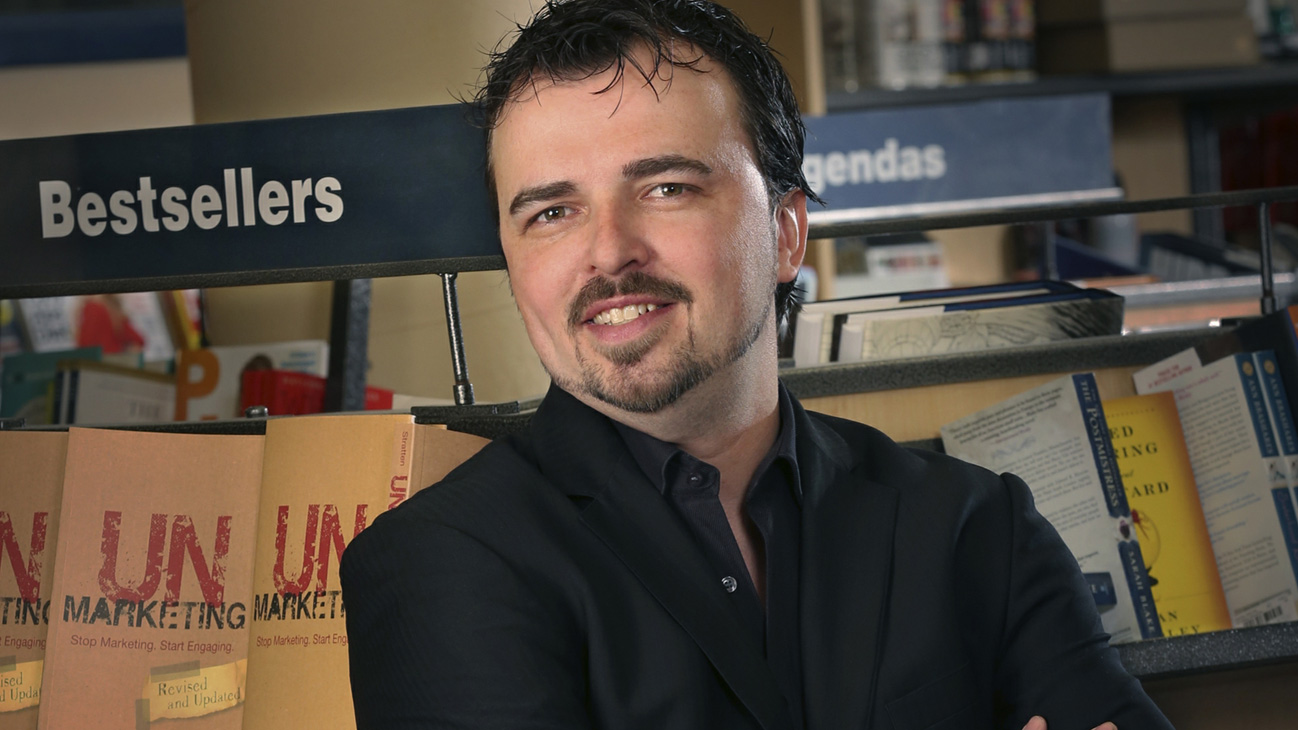From The Toronto Star, by Madhavi Acharya-Tom Yew:
With more than 135,000 followers on Twitter, GTA native Scott Stratten has been voted one of the top influencers on the site, putting him in the ranks of Ashton Kutcher, P Diddy and Justin Bieber. Stratten, 37, a former music industry marketer and a professor at the Sheridan College School of Business, ran his Oakville-based marketing agency, Un-Marketing, for a nearly a decade. He has written two books: UnMarketing: Stop Marketing. Start Engaging and The Book of Business Awesome. The Star caught up to Stratten prior to a Toronto appearance to talk about Twitter, why businesses are scared of social media, and what they can do about it.
Q: You say that businesses don’t have to be everywhere on social media. That sounds like a contradiction coming from an expert on social media.
A: The problem is there’s just too many places right now. You can’t be everywhere at once. You need to be great where you are and not be mediocre everywhere. We all have a limited amount of time. If you have an hour a day that you’re committing to social media, it’s better to spend an hour on two sites rather than five minutes on 12 sites.
Q: You like to say, don’t try to have presence without being present. What does that mean?
A: That means don’t automate. There are automated tweets, scheduled tweets. There’s a way to, when you update Facebook, it will tweet the same thing. I say it’s like sending a mannequin to a networking event. You’re there, but you’re just not there.
Q: What are businesses most intimated by when it comes to social media?
A: They’re scared of the negativity. They’re scared of people complaining. What I say to that is, if people are constantly complaining about your company on social media, that’s not a social media problem. That’s a company problem. It’s not Twitter’s fault if your product stinks. Realize that you have a chance to fix things, otherwise they just go unresolved. Or you can not do anything and your competitors can listen in and steal your customers.
Q: Will having a presence on social media improve a company’s bottom line?
A: If you want to improve your bottom line, improve your front line. The front line is usually the least paid and the least appreciated but they can affect transactions and your brand more frequently than anyone else in your company. It doesn’t make any sense to spend a bunch of money on marketing and cut costs in hiring. Social media doesn’t change anything. It only amplifies. If your product or service stinks, it stinks even more on social.
Q: How does a business figure out where to focus in the social media landscape?
A: One of the smartest things a business can do is to ask their customers where they go. Survey customers if you have a bricks and mortar business or if you have an email list. Tell them we love to see where our customers go. I have a chapter in the new book called “Data is Dangerous”. It’s about seeing headlines like “60 per cent of people log into Google+ every day” or whatever the stat is. The point is that somebody else’s data doesn’t mean anything for you, necessarily. If the point of social media for you is to interact with your customers, find out where they go. If the point of social media for you is trying to build your business bigger because you’re just starting out, find out where your potential customers are.
Q: What made you join Twitter?
A: I joined Twitter to find other business owners. I just wanted to have a virtual water cooler of other entrepreneurs. I didn’t go on to Twitter to get 130,000 followers. I didn’t get on there to be an expert in social media. I really love the conversation part of it. You don’t have a wall. You don’t have a photo album. It’s just snippets of talk. I’ve tweeted 92,000 times and 78 per cent of those are replies. That to me defines my whole theory of Twitter as a conversation, not a dictation. The ones who succeed on Twitter are the ones who talk to people, not at them.
Q: What’s the next big thing in the world of social media?
A: At the end of the day, I really believe we’re truly terrible at what we have now. Looking down the road is not a good thing. I need to get into a time machine and go back to five years ago to fix five years ago. There’s some cool stuff but the problem is we’re not ready for cool stuff. We’re not even ready for QR codes. We need a parent to come over and take it out of our hands and say “You’re not ready for that yet. When you’re older and more responsible, we’ll give you QR codes.”

